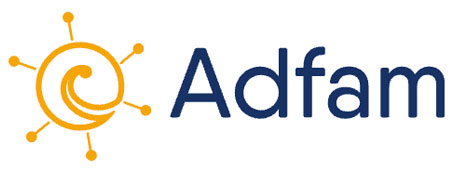Gambling statistics in the UK | A Deep Dive
Gambling Facts, Figures and Statistics
Gambling is a prevalent activity in the UK, with widespread participation across various forms, including sports betting, casino games, and online platforms. While many people enjoy gambling as a form of entertainment and a social activity, it can have serious consequences for individuals and society, particularly when it leads to addiction.
This page offers a comprehensive overview of gambling statistics in the UK, including prevalence rates, usage patterns, health impacts, treatment options, and the socioeconomic effects of gambling.
Understanding gambling
Gambling involves risking money or valuables on an outcome that is influenced by chance, skill, or a combination of both. Common forms include betting on sports, casino games, online gambling, and lotteries. While many people gamble responsibly and only occasionally, for some, it can lead to serious addiction and financial difficulties, not to mention the detrimental impact it can have on mental health and relationships.
Did you know?
INTERESTING FACTS ABOUT gambling
A history of gambling activity
Gambling has been a part of human culture for centuries. In the UK, the gambling industry has evolved significantly, with the Betting, Gaming, and Lotteries Act 1963 being one of the first major regulations. The Gambling Act 2005 introduced comprehensive legislation to regulate gambling and protect consumers, although challenges and issues persist.
What makes gambling addictive?
For some people, gambling is an occasional activity during sport seasons but for others, it can truly take over. This is because of the craving of dopamine that releases with the excitement of winning and the anticipation of a potential big win, creating a cycle resulting in tolerance, dependence, and compulsive behaviour.
Gambling behaviour in the UK
Gambling statistics UK
Prevalence of gambling in the UK
Approximately 43% of UK adults in Great Britain are affected by a gambling problem.
Age group usage
9.1% of adults aged 18-24 in the UK experience issues related to "problem gambling."
Regulation of industry
The UK Gambling Commission regulates the industry to ensure fair play and protect consumers, although challenges and concerns about addiction persist.
Most popular form of gambling
The national lottery draws are incredibly popular, with around 27.6% of adults joining in during the year up to March 2023.
Second most popular
This is followed by scratch cards at 7.5%.
The impact of online gambling
In contrast to traditional gambling methods, online gambling is experiencing rapid growth, largely driven by the convenience and accessibility of digital platforms.
The gambling industry
The gambling industry's annual £1.5 billion advertising spend advertising spend increases exposure and normalises gambling.
Gender differences
Men are more than seven times as likely to develop gambling problems compared to women.
Socioeconomic factors such as financial stress and limited economic opportunities can drive individuals to gamble as a means of escaping their difficulties or seeking quick financial relief. Additionally, gambling may be more prevalent in lower-income communities due to the accessibility and allure of potentially substantial winnings as a solution to economic hardship. For some people, particularly young men, gambling is an inherent part of social activities.

HEALTH CONSIDERATIONS
How does gambling affect lives ?
Short term effects
Excitement and thrill from gambling activities
Temporary financial gains or losses
Stress and anxiety related to betting outcomes
Long term effects
Financial problems (debt and bankruptcy)
Mental health disorders (depression, anxiety, stress)
Relationship issues, and impacts on overall quality of life
Is dual diagnosis possible with gambling?
Yes, dual diagnosis is possible with gambling, as individuals may experience co-occurring mental health disorders or substance use issues alongside gambling addiction. Effective treatment requires a personalised approach that addresses both gambling and the additional conditions simultaneously, ensuring a comprehensive and tailored plan for recovery.
GETTING HELP
Can gambling addiction be treated?
Yes, gambling addiction can be treated through a combination of behavioural therapies, counselling, and support groups. Effective treatment typically involves a personalised approach that addresses both the addiction and any co-occurring mental health issues.
Client satisfaction with our service
Complete their detox programme
Complete their treatment programme
Resources and support for meth addiction
GamCare
GamCare is available to provide confidential advice, support, and information for anyone affected by problem gambling. Their trained advisors offer guidance on overcoming gambling issues and can connect individuals with additional resources and treatment options.
Gambling Anonymous
Gambling Anonymous is a fellowship for those seeking to recover from gambling addiction, offering meetings and a support network. Members share their experiences and provide mutual support to help each other achieve and maintain sobriety from gambling.
BeGambleAware
Provides information to help people make informed decisions about gambling and offers support for those struggling with gambling problems. Their website includes resources for education, self-help tools, and details on seeking professional help.
Adfam
Adfam is a UK-based charity that focuses on improving the lives of families affected by drug, alcohol, and gambling issues. It provides support, information, and advocacy to help families cope with the challenges of addiction and works to influence national policy to better address their needs.
Reach out and start your recovery journey
Envision a future free from the hold of gambling. Our expert team is ready to help you make that vision a reality with tailored support and practical solutions to guide your recovery.



